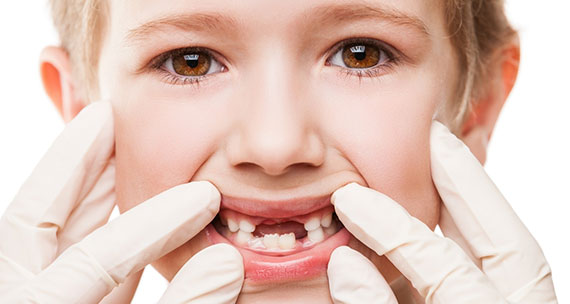Milk Tooth Fillings Treatment in Rohini, Delhi
Children develop their milk or baby teeth between the ages of 6 months to three years old. Between that time and the time that they each fall out to be replaced by permanent teeth, a child may experience dental problems before the permanent teeth are ready to erupt. These problems include tooth decay that can lead to tooth loss or broken tooth and the development of severe infection or abscess.
One of the common dental treatments to protect baby teeth is milk tooth filling. It may be surprising to consider the need for this procedure since baby teeth will eventually fall out anyway. However, there are several reasons why this treatment is important.
First Reason
Milk teeth serve as the guide or placeholder for the permanent teeth. When a baby tooth is removed or lost before the permanent tooth is ready to come out, the adjacent teeth may move into the space occupied by the lost tooth. What this means is that the permanent tooth, when it’s supposed to come out, won’t be able to because another tooth is blocking its way.
Second Reason
Milk teeth play a big role in the correct development of speech patterns. Milk teeth that have been damaged by tooth decay can cause problems like lisps or whistling especially when the damage affects the front teeth.
Third Reason
Milk teeth are obviously needed for chewing food and are thus crucial for children to receive proper nutrition.
Knowing the reasons why a milk tooth filling is important may guide parents into accepting this treatment instead of just deciding to remove the tooth before it’s ready to fall out or before the permanent tooth is ready to come out.
Why are milk teeth important?
- They help in the growth of a child’s jaw.
- Determine the face structure.
- Maintain the space for the permanent teeth in future.
- Help child in speech
- Chewing food properly

How Does the Procedure Work
Tooth decay is typically discovered by parents who closely monitor their children’s teeth or Our Dentist |Check-up. Once tooth decay has been confirmed, a milk tooth treatment should be considered.
At shanti dentals, Children’s Dentists will do a quick inspection of the teeth and take note of any teeth that need filling. Prior to the procedure, the dentist may elect to use a local anesthetic, depending on the severity of the tooth decay. He may also apply a numbing gel on the gums before injecting the anesthetic.
Once the anesthesia starts working, Our dentist will proceed by removing the decay in the tooth. A drill and a scraping tool will be used while a nurse removes the water and debris build-up in the mouth using a suction tool. When the tooth is clean, the dentist will proceed by putting the milk tooth filling in the hole. It can be silver or a tooth-colored filling.
To make sure that the filling is not too thick, the dentist will ask the child to bite and assess if it feels normal. If all is well, a final rinse is the last step and then the procedure is over. At shanti dentals Provide Best Treatment of milk Tooth Fillings for Children in Rohini.
Why Do Cavities Need Treatment?
Cavities are a chronic, and transmissible infectious disease. Bacteria in the mouth that produce acid when exposed to sugars cause cavities. This acid, when allowed to stay on the teeth, eventually causes holes in the enamel and dentin of the tooth. When cavities are small and only affecting the enamel, they may be healed by remineralization. This requires fluoride treatments and diet changes that avoid baby teeth fillings. However, the cavity must be caught early because enamel, especially on the front teeth is very thin. Once the cavity has gone beyond this, it will continue to get larger until treated.


Why Are Fillings in Baby Teeth Necessary?
- To prevent pain from toothaches
- To prevent damage to developing permanent teeth
- To prevent early loss of baby teeth and crowding when adult teeth come in
- To prevent poor eating habits and malnutrition and promote healthy growth and development
- To prevent poor sleeping habits and poor school performance which are linked to toothaches
And most importantly, to prevent life threatening infections and spread of infection to the brain, sinuses, ears, face, neck, and heart.
